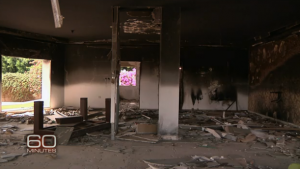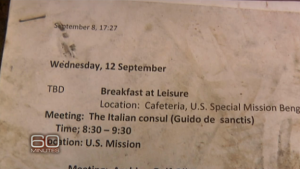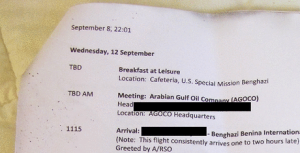60 Minutes’ Response Is Still Inadequate
60 Minutes has released the results of its review of Lara Logan’s ridiculous story on Benghazi. In response, they’re putting Logan and the producer of the story on administrative leave for an undisclosed period of time.
I guess if Dan Rather were prettier he’d still be working at 60 Minutes.
And even with Logan’s leave, their response is still inadequate. Check out the first two bullets in their internal report.
–From the start, Lara Logan and her producing team were looking for a different angle to the story of the Benghazi attack. They believed they found it in the story of Dylan Davies, written under the pseudonym, “Morgan Jones”. It purported to be the first western eyewitness account of the attack. But Logan’s report went to air without 60 Minutes knowing what Davies had told the FBI and the State Department about his own activities and location on the night of the attack.
–The fact that the FBI and the State Department had information that differed from the account Davies gave to 60 Minutes was knowable before the piece aired. But the wider reporting resources of CBS News were not employed in an effort to confirm his account. It’s possible that reporters and producers with better access to inside FBI sources could have found out that Davies had given varying and conflicting accounts of his story. [my emphasis]
All the focus on this story has been on what Jones AKA Davies told the FBI. But as 60 Minutes notes (and I reported weeks ago), Jones AKA Davies’ story also conflicted in significant ways with the publicly released Accountability Review Board. And while the report didn’t attribute the many failures of Jones AKA Davies’ employees to an interview with him directly, the scathing review of Blue Mountain Group’s (and therefore Jones AKA Davies’) performance provided obvious motive for Jones AKA Davies to lie (in part, because his failures contributed to getting Chris Stevens killed).
So while it’s nice that 60 Minutes expresses some embarrassment they didn’t get people with better sources at CBS (including the CBS people who used to work at FBI) to double check Jones AKA Davies’ story with the FBI, I’m really wondering if they have an explanation for why, over a year of work, neither Logan nor her producer did something as simple as a Google search?




